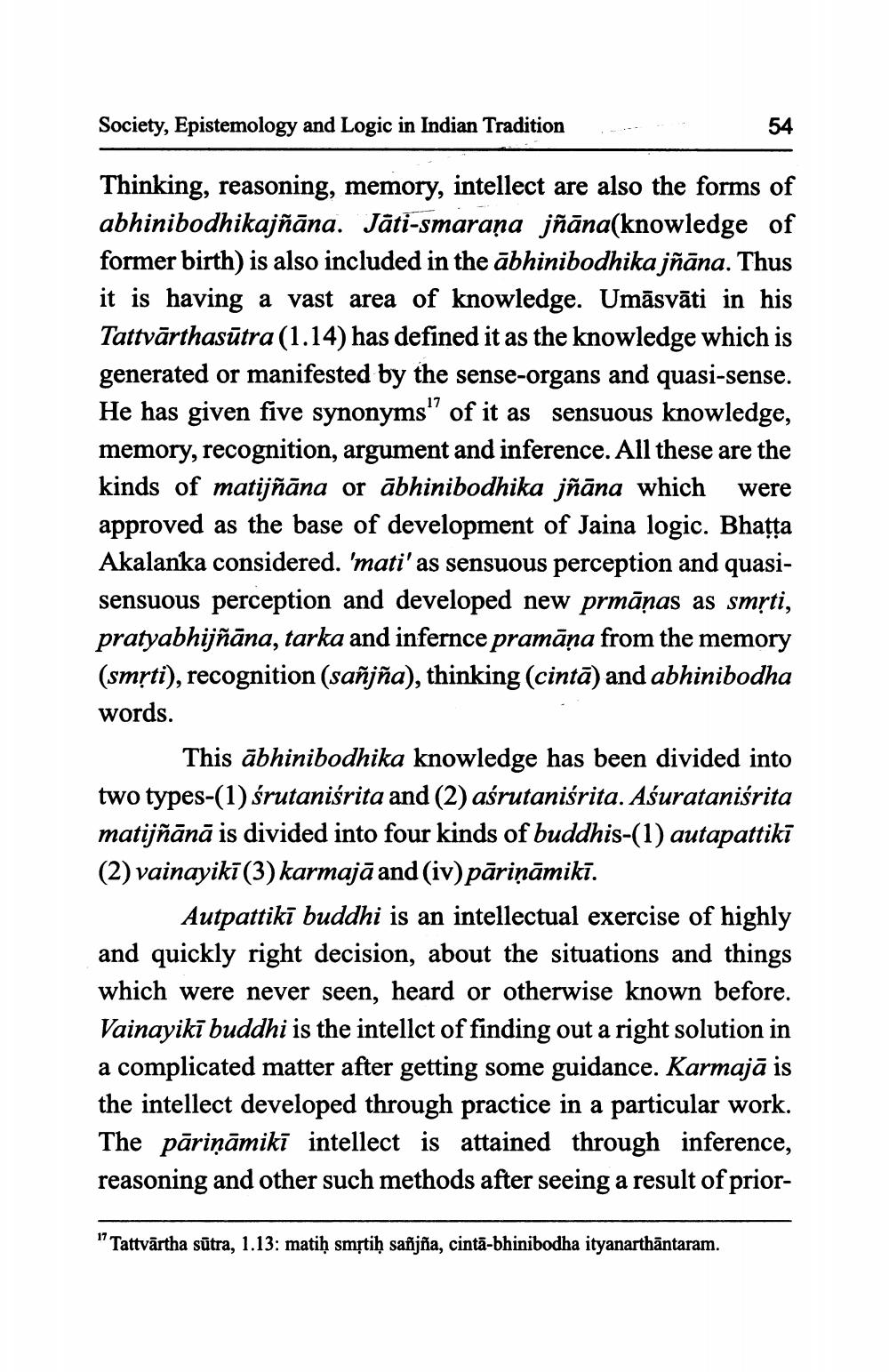________________
Society, Epistemology and Logic in Indian Tradition
Thinking, reasoning, memory, intellect are also the forms of abhinibodhikajñāna. Jāti-smaraṇa jñāna(knowledge of former birth) is also included in the abhinibodhika jñāna. Thus it is having a vast area of knowledge. Umāsvāti in his Tattvārthasūtra (1.14) has defined it as the knowledge which is generated or manifested by the sense-organs and quasi-sense. He has given five synonyms" of it as sensuous knowledge, memory, recognition, argument and inference. All these are the kinds of matijñāna or ābhinibodhika jñāna which were approved as the base of development of Jaina logic. Bhaṭṭa Akalanka considered. 'mati' as sensuous perception and quasisensuous perception and developed new prmāṇas as smṛti, pratyabhijñāna, tarka and infernce pramāņa from the memory (smrti), recognition (sañjña), thinking (cinta) and abhinibodha words.
This abhinibodhika knowledge has been divided into two types-(1) śrutaniśrita and (2) aśrutaniśrita. Asurataniśrita matijñānā is divided into four kinds of buddhis-(1) autapattikī (2) vainayikī (3) karmajā and (iv) pāriṇāmikī.
54
Autpattiki buddhi is an intellectual exercise of highly and quickly right decision, about the situations and things which were never seen, heard or otherwise known before. Vainayiki buddhi is the intellct of finding out a right solution in a complicated matter after getting some guidance. Karmajā is the intellect developed through practice in a particular work. The pārināmiki intellect is attained through inference, reasoning and other such methods after seeing a result of prior
17
"Tattvārtha sūtra, 1.13: matiḥ smṛtiḥ sañjña, cinta-bhinibodha ityanarthantaram.




